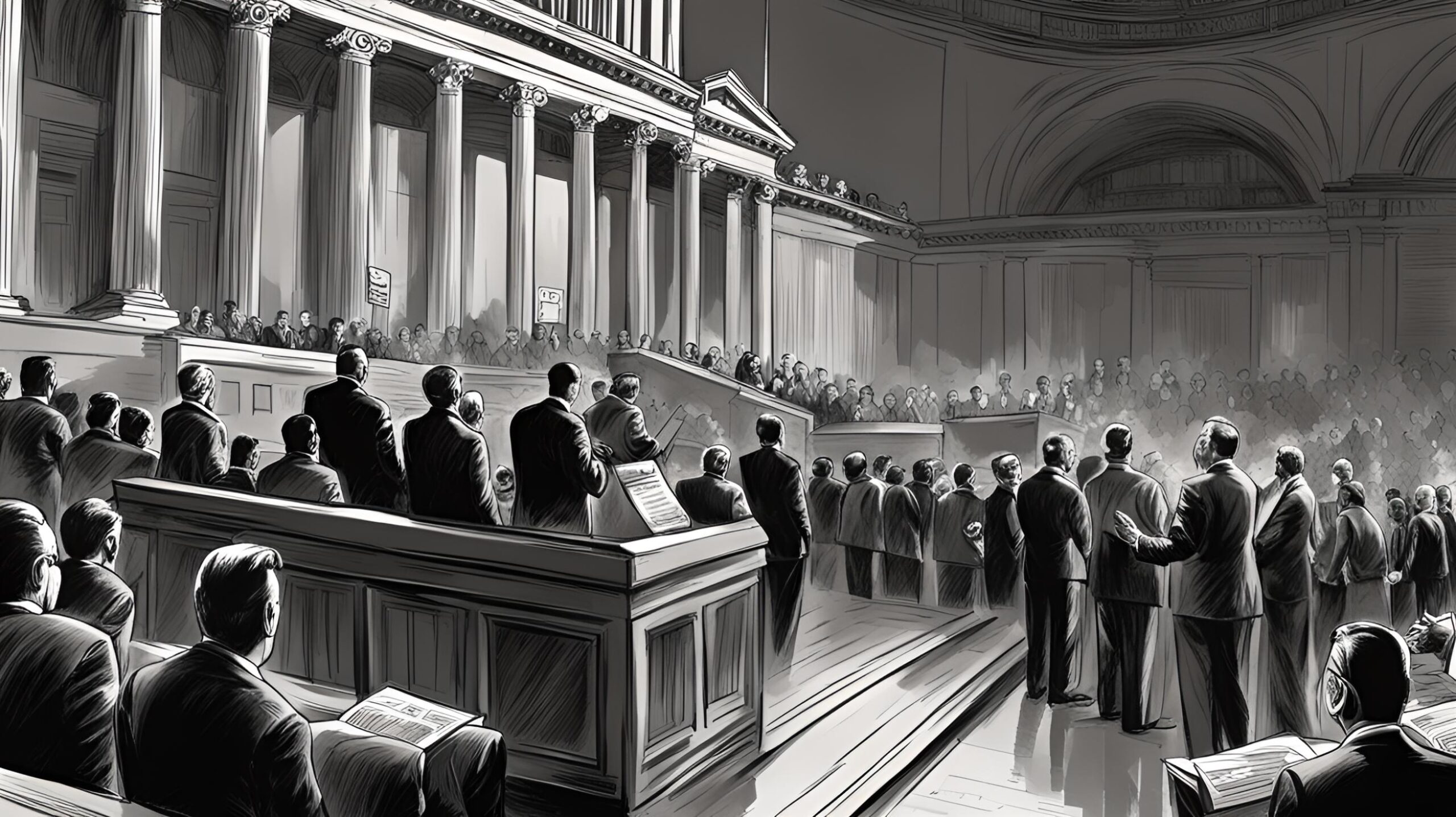Flashback to August 29
American History

1988
US Secretary of State George Shultz narrowly escapes assassination attempt in Bolivia.
Read moreOne of the historical moments that have marked the sphere of international politics was the narrow escape of the US Secretary of State George Shultz from an assassination attempt in Bolivia on August 8, 1988, a day etched in the annals of global politics. This article dives deep into the circumstances and aftermath of this unprecedented event that shook world leaders and citizens alike.
George Shultz, an outstanding diplomat, served as the US Secretary of State and held other important roles spanning both business and academia. His tenure in the cabinet of President Ronald Reagan was particularly remarkable, having closely navigated the intricate threads of international diplomacy amidst the chilly cold war era.
On the day in question, August 8, 1988, the US Secretary of State George Shultz embarked on an official visit to Bolivia. Bolivian relations with the US were of utmost significance then due to their collaborative efforts against drug trafficking and the bolstering of democracy in Latin America.
While Shultz’s visit was surrounded by the fanfare typical of such high-profile visits, unknown to many, a sinister plot was being hatched against him. A group allegedly targeting the high-ranking diplomat planned to assassinate him, putting Bolivia in a diplomatic quandary that could have potentially escalated into a full-blown international crisis.
The Intelligence departments, both in the U.S and Bolivia, were on high alert during the Secretary’s visit. Their roles cannot be overemphasized in thwarting the plot against Shultz. Their swift action and timely countermeasures were critical to the security of the US Secretary of State, averting a potential diplomatic debacle.
In the wake of the news of the foiled attempt, global reactions were quick and varied with shock, concern, and condemnation being expressed across capitals. The incident heightened the discourse on the security of diplomats, leading to renewed demands for tighter measures across the globe, and especially in countries facing intense political upheavals.
The assassination attempt on George Shultz raised significant questions regarding the safety of top-level diplomats and leaders visiting foreign countries. As a result, measures for the secure transportation and accommodation of these individuals saw major upgrades. The evolution of diplomatic security has its roots in moments like these, thereby underscoring their historical and contemporary significance.
As the news of the narrow escape trickled out, it significantly bolstered Shultz’s profile, turning him into a resilient diplomat unafraid to venture into challenging terrains for the sake of international diplomacy. His status as a remarkable diplomat was etched further into history.
In Bolivia, the failed assassination attempt reverberated on a national scale, influencing its approach towards the security of visiting foreign dignitaries. The incident led to a heightened sense of awareness concerning local extremist groups, indirectly contributing to the country’s measures against homegrown terrorism.
The event’s historical significance is increased by its connection to the broader issues of the time, such as the Cold War, the Reagan administration, drug trafficking, and democracy promotion in Latin America. These pressing issues of the late 1980s were apparent in the backdrop as Shultz narrowly escaped the attempt on his life, reminding us of the volatile geopolitical landscape during that period.
The attempted assassination of the US Secretary of State George Shultz in Bolivia on 8/8/1988 remains a defining moment in international diplomacy. It graced headlines worldwide, further highlighting the need for robust diplomatic security measures. The instance stands in history as an eye-opener, resulting in bolstered security measures for diplomats and became a critical link in the ongoing narrative of global politics and diplomacy.
Through a comprehensive understanding of this incident, we gain valuable insights into the world of international relations, the extent of cold war technologies, espionage, and the persistent efforts and strides taken to ensure the safety of political leaders across the world. This account of George Shultz’s narrow escape serves as a fitting testament to the drama, courage, and intense strategizing inherent in international diplomacy.
We strive for accuracy. If you see something that doesn't look right, click here to contact us!
Sponsored Content

US Congress passes Civil…
The US Congress marked…

Strom Thurmond (Senator-Democrat-South Carolina)…
"Serving as a prominent…

Senator John McCain announces…
"In a pivotal moment…

The US Mint officially…
The US Mint unveiled…

Haverhill, Mass destroyed by…
Experience the brutal history…

